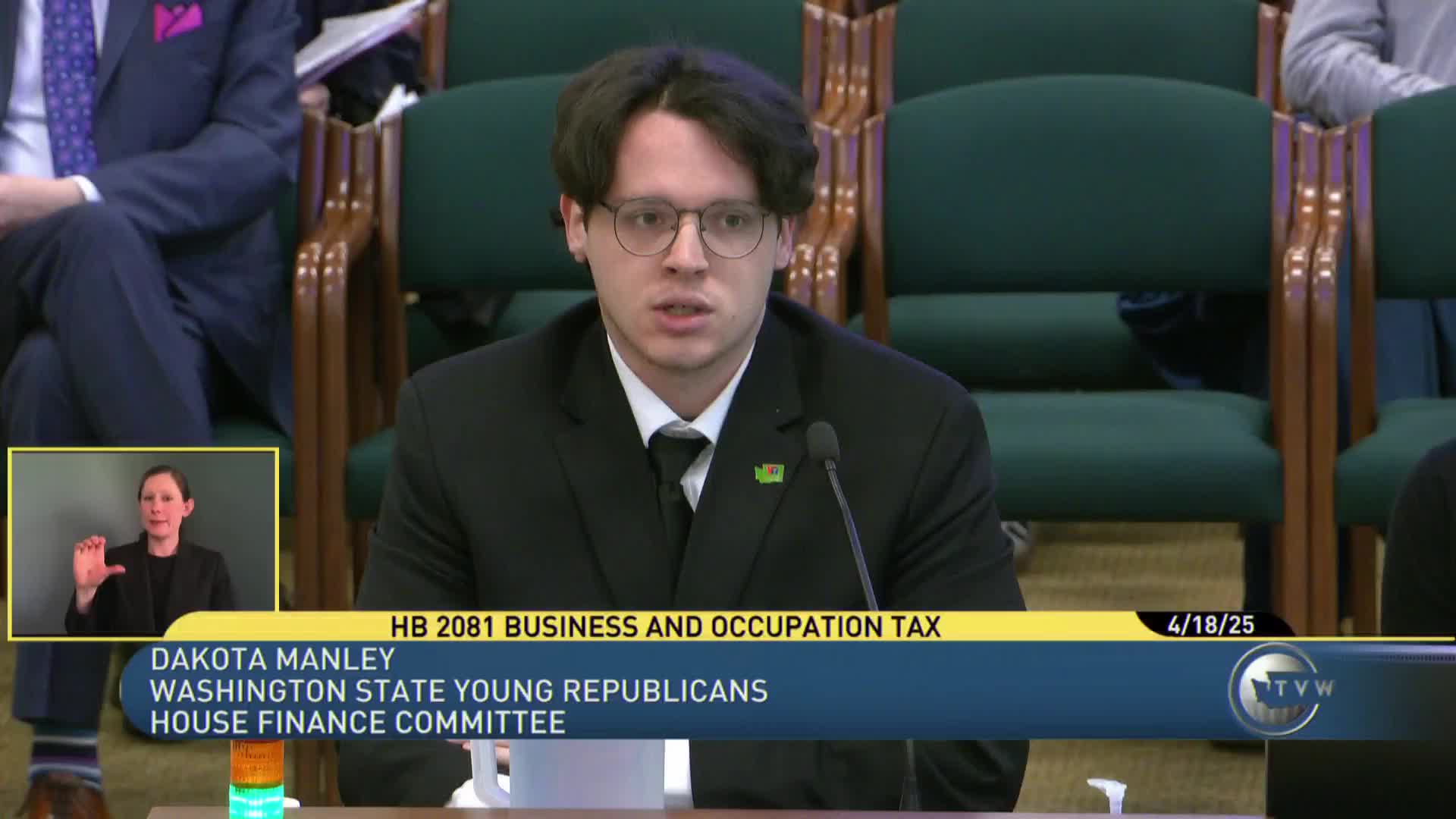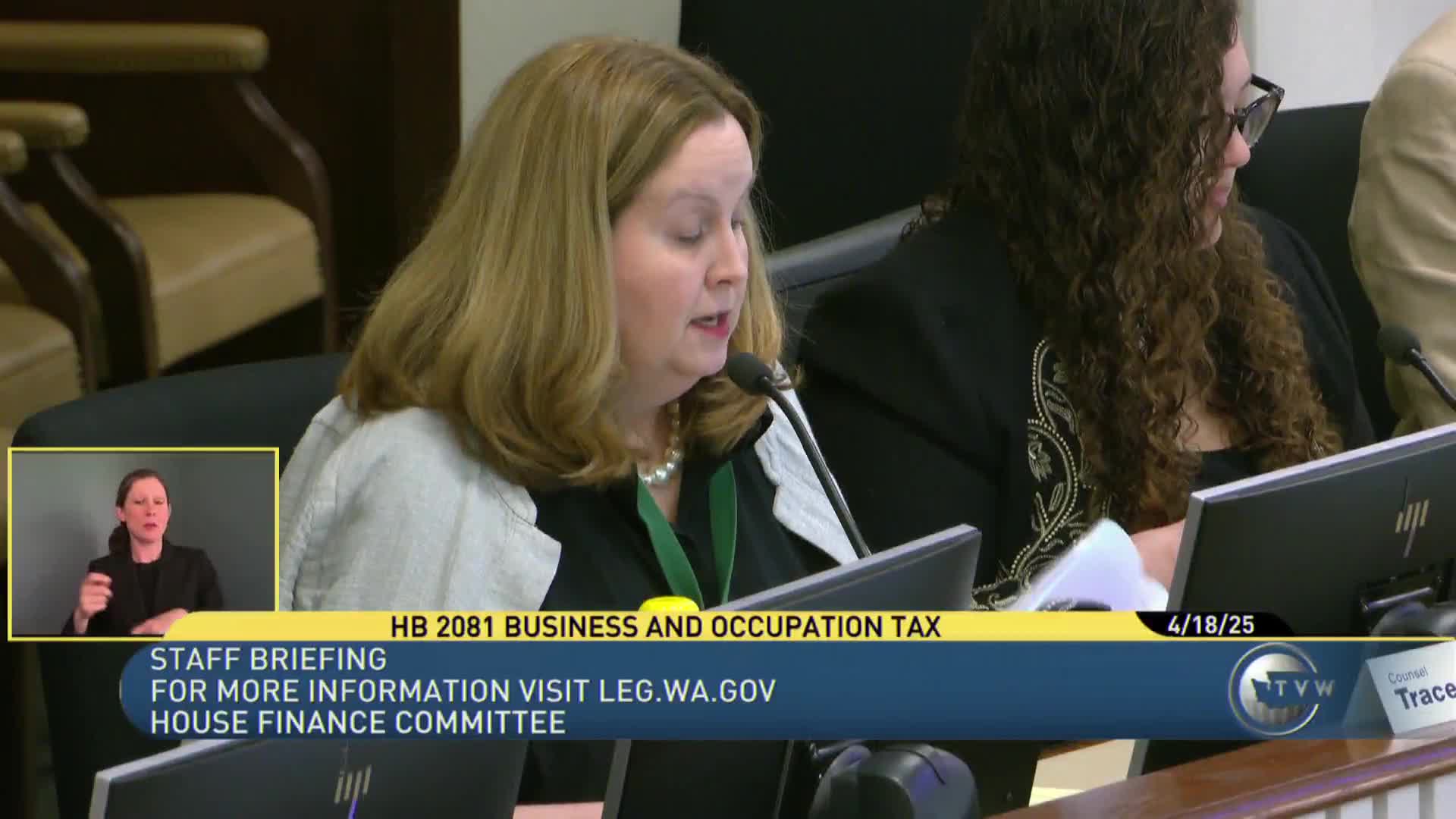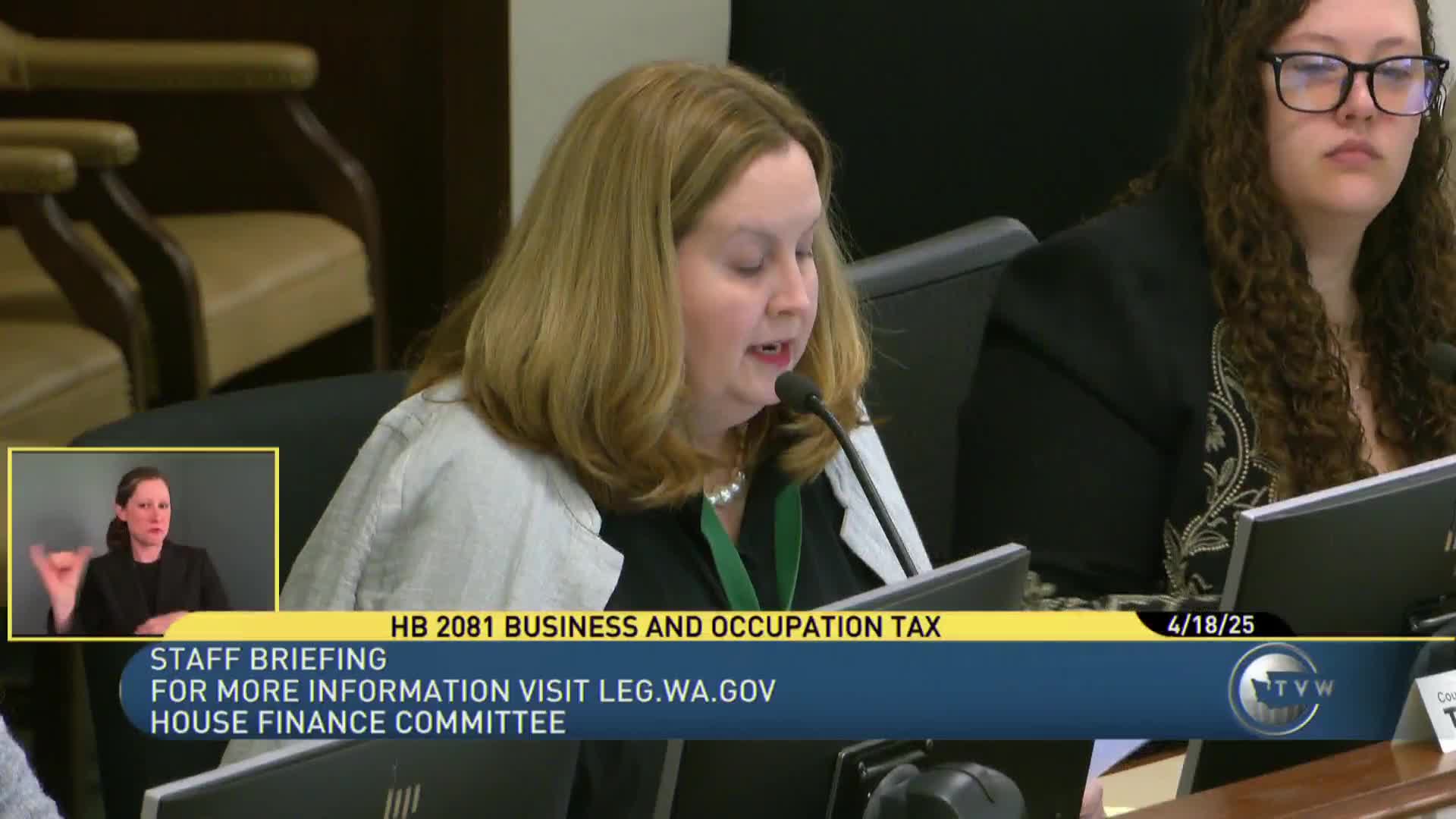Article not found
This article is no longer available. But don't worry—we've gathered other articles that discuss the same topic.

Committee hears HB 2084 to repeal tax preferences for bullion, change self-storage taxation, and remove pharmacy warehousing rate

House Finance hears proposal to tax surplus ZEV credits, divide revenue for EV incentives and state funds

